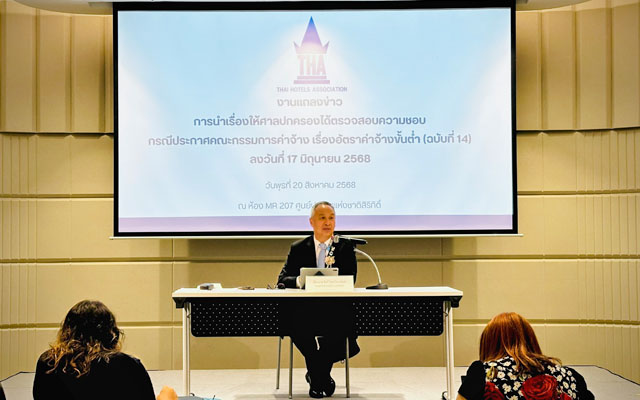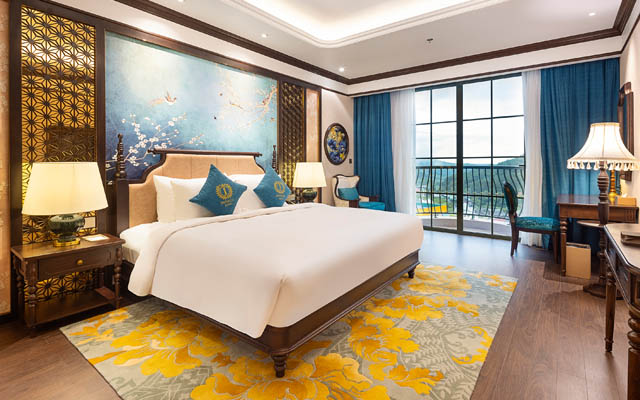The Thai Hotels Association (THA) will petition the Administrative Court to review the Wage Committee’s 14th announcement on minimum wage rates, which sets a nationwide minimum of 400 baht (US$12.30) per day for hotels of types 2, 3 and 4, effective July 1, 2025. Type 1 hotels, which provide guestrooms only and no additional facilities, are excluded.
The new rate is part of the government’s plan to raise the daily minimum wage to 650 baht nationwide. While supporting fair pay, THA argues the uniform rate does not take into account economic differences between provinces.

“We are not opposed to higher wages – we know they improve workers’ lives and strengthen the economy. But applying the same rate to every hotel, in every province, ignores the huge differences in economic conditions and tourist demand,” said THA president Thienprasit Chaiyapatranun at a media briefing.
Thienprasit warned that the flat rate could destabilise operators in secondary destinations with low or inconsistent tourism demand.
“In some provinces, the minimum was 345 or 350 baht. To push that suddenly to 400 baht is a 17 per cent jump overnight,” he explained.
Labour already makes up 25 to 30 per cent of hotel operating costs, with energy being “the biggest burden after staff”.
Together, these make up more than half of overall expenses, leaving operators with limited room to manoeuvre.
“If you are a hotel in a remote province, you will be in real trouble. Hotels in Bangkok or Phuket may absorb the increase, but in places like Nan or Phrae, the markets simply cannot bear it. Yet we are all forced to pay the same rate,” he added.
Fairness issues also arise between licensed and unlicensed operators.
“Hotels with permits must pay 400 baht. But unlicensed hotels don’t follow the rules and that creates unfair competition. In effect, the new policy punishes the operators who comply with the law,” he stressed, suggesting the new conditions may discourage compliance and incentivise some operators to avoid hotel licensing altogether.
THA fears smaller enterprises, already struggling since the policy took effect on July 1, will be forced to cut permanent staff and rely on casual or part-time workers.
“If the policy remains in place, many operators will eventually have no choice but to reduce their workforce. They will move to on-call hiring – housekeepers or cleaners who come in only when there are guests. That is the reality we face,” Thienprasit stated, warning of employment consequences.
He emphasised the court challenge is not against higher wages but against the way they are being applied.
“If the Wage Committee imposes a flat rate without considering local realities, it is unfair and unlawful (according to Thai labour laws). We want the court to review whether this was a proper use of discretion,” he said.
“Hotels with strong demand and high-spending guests will always pay more, because they need skilled staff with language ability. That is a healthy economic mechanism. But forcing small hotels in weak economies to match the big players – at the same rate, even for inexperienced staff – is what we are fighting against,” he concluded.
He confirmed THA has also instructed its legal team to seek temporary suspension of the 400 baht requirement for hotel operators until the Administrative Court delivers its ruling.


















